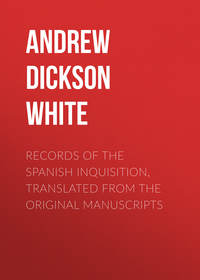Records of the Spanish Inquisition, Translated from the Original Manuscripts

Полная версия
Добавить В библиотекуАвторизуйтесь, чтобы добавить
Добавить отзывДобавить цитату
Records of the Spanish Inquisition, Translated from the Original Manuscripts
Авторизация